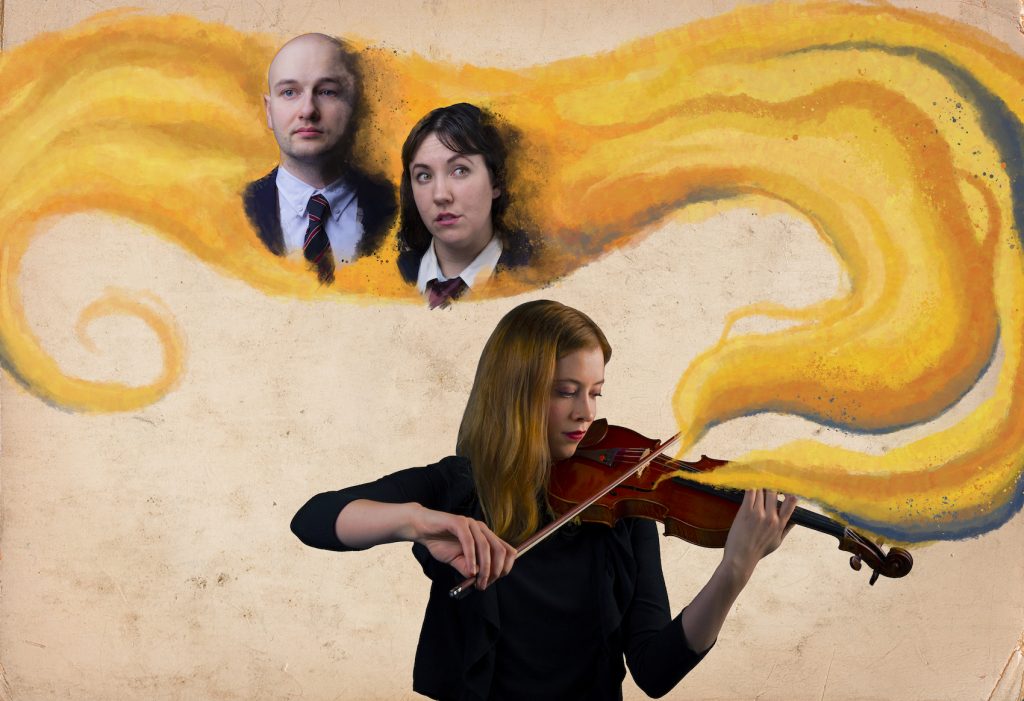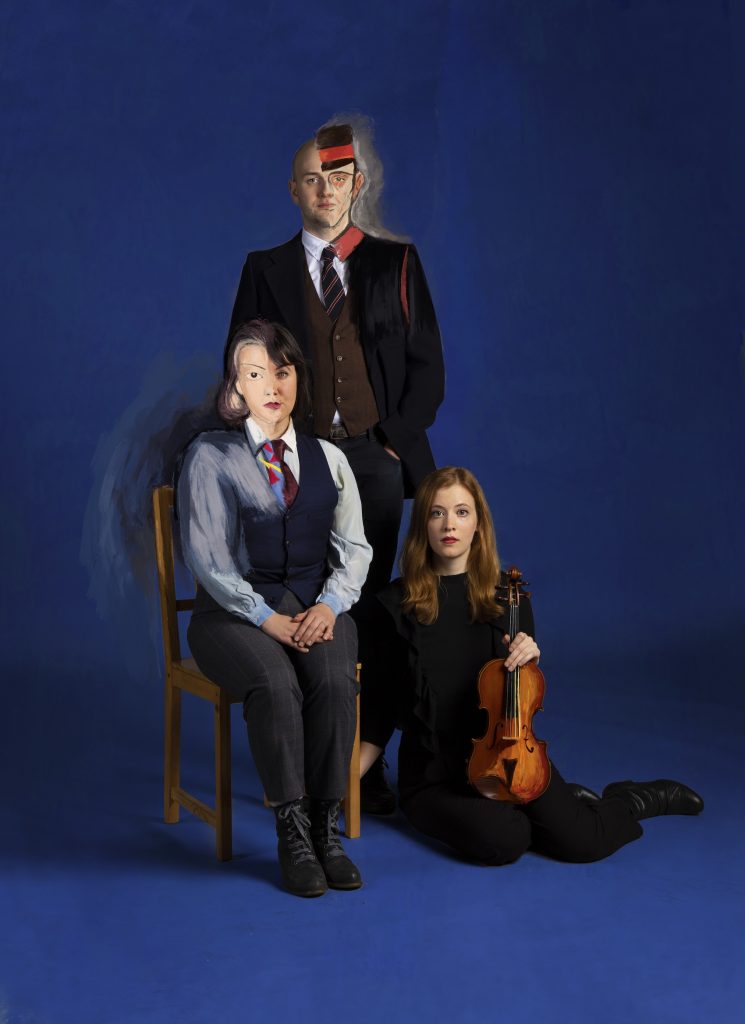
Credit: Bold Rezolution Studio
At the Annex (823 Seymour Street) until April 20, 2019
Tickets from $25 at tickets.theatrewire.com
Posted April 19, 2019
There are moments of real beauty in this interesting hybrid – part drama, part violin recital – based on the life of little-known violinist/composer Sophie-Carmen Eckhardt-Gramatté, conceived by actor/playwright/musician Christine Quintana and violinist Molly MacKinnon. The musical spine of Never the Last is a collection of ten solo pieces for violin – called caprices and numbered one to ten – written by Eckhardt-Gramatté between 1924 and 1934. MacKinnon, always on stage, appears sometimes solo, playing an entire piece, or hovering musically around the action between Quintana, as Eckhardt-Gramatté, and Anton Lipovetsky, as impressionist painter Walter Gramatté.
The relationship between the two begins grudgingly on the part of Sophie and teasingly by Walter in 1919 at a Berlin art show. “I find you rude and a bit charming”, Walter tells her. Some of Quintana’s best writing is in these early scenes with Sophie and Walter matching wits. “Cats or dogs?” he challenges. “Trousers or petticoats?” she asks. Quintana and Lipovetsky have very good chemistry between them as we watch Walter slowly break down Sophie’s reserves. She agrees to marry not with a kiss but a handshake.
In this Delinquent Theatre production, Sophie is dressed in trousers, jacket and tie – very mannish, very New Woman and very worried that in marriage, “I would lose my freedom”.

Credit: Bold Rezolution Studio
The relationship is tempestuous, plagued by poverty and lack of recognition but it endures in a deeply loving and artistically productive way. She composes, he paints; music, art and life mingle in an intoxicating outpouring.
While the beginning of the play, directed by Laura McLean, is mostly verbal with quick, sharp, clever dialogue, the last is mostly movement depicting both Sophie and Walter’s furiously creative drives. Her music stand and his easel are waved aloft, danced around in a kind of creative abandon.
Choreographed by Kayla Dunbar, this part of Never the Last is least satisfying as neither Quintana nor Lipovetsky are dancers. It might be worthwhile, on a remount, to consider using two dancers for this part of the play. With a violinist already incorporated, a pair of dancers would be beautiful.
Jenn Stewart sets the action against a trio of pure white cubist blocks against which designer Joel Grinke projects fragments of Walter Gramatté’s paintings. It’s gorgeous in constantly changing splashes of colour.
Eckhardt-Gramatté, born in Moscow in 1899, eventually emigrated to Canada in 1953, many years after the death of Walter. Settled in Winnipeg, she composed and taught violin until her death in 1974. Much of her work remains unpublished. The caprices, flawlessly performed by MacKinnon, are quite varied with titles like The Golden Island, The Dance and Lament; not melodic in the conventional sense, they capture the composer’s various states of mind: gay, confused, unhappy, longing, uncertain, playful, bold.
Produced by Delinquent Theatre, a Vancouver-based theatre company whose mandate is to create, develop and produce new Canadian plays, Never the Last is an ambitious and very promising step forward for Quintana, the 2017 Siminovitch Protégé prize winner. And what’s not to love about a love story?

